Connecting Science and Society: 5 Lessons from Dr. Fanuel Muindi
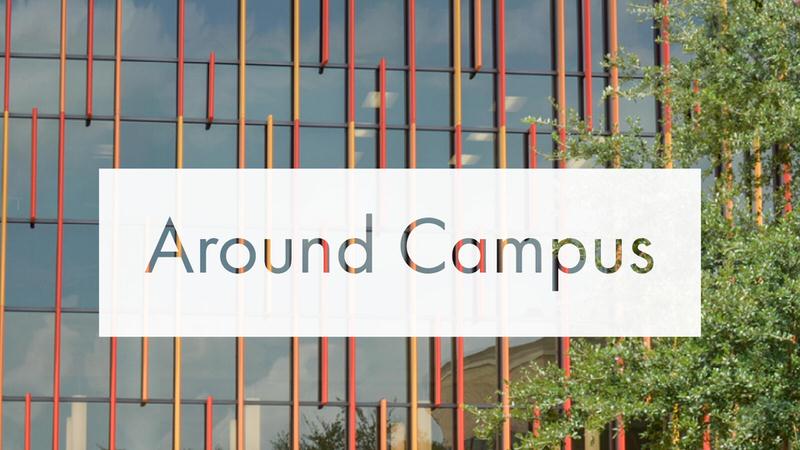
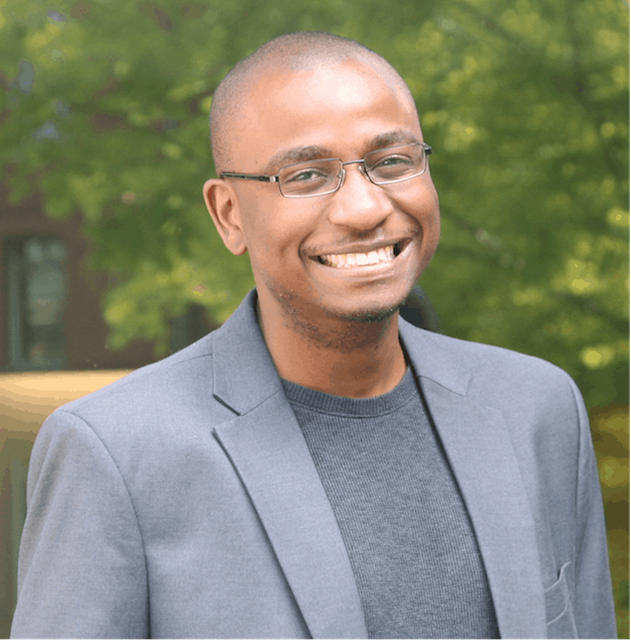 The student-led Women in Science: Development, Outreach, and Mentoring (WISDOM) organization hosted Dr. Fanuel Muindi, founder of STEM Advocacy Institute (SAi), on Feb. 23 to discuss diversity and inclusion in science.
The student-led Women in Science: Development, Outreach, and Mentoring (WISDOM) organization hosted Dr. Fanuel Muindi, founder of STEM Advocacy Institute (SAi), on Feb. 23 to discuss diversity and inclusion in science.
Dr. Muindi is originally from Tanzania, and he completed his Ph.D. at Stanford University. He currently serves as the assistant director of graduate studies at Harvard University where his job consists of program development, student mentorship, and grant writing.
“My journey was not a straight path,” Dr. Muindi said. “There were “lots of forwards and backwards, and it didn’t always make sense.”
Throughout his tenure as a graduate student, Dr. Muindi found himself asking, “How can we make an impact making science more accessible around the world?”
This question, continuing to resonate with Dr. Muindi, helped spark his inspiration to become involved in community outreach and engagement, including organizing a Run for Education to raise money for students in the Bay Area. In addition to connecting with his local community, Dr. Muindi branched out to a wider audience when he started writing about issues he found himself passionate about.
After publishing in high impact journals such as Nature and Science, Dr. Muindi was overwhelmed with the number of email inquiries he received asking how others could get involved in connecting society to science. This flood of interest lead to the birth of a platform Dr. Muindi could utilize to truly connect community and science, SAi.
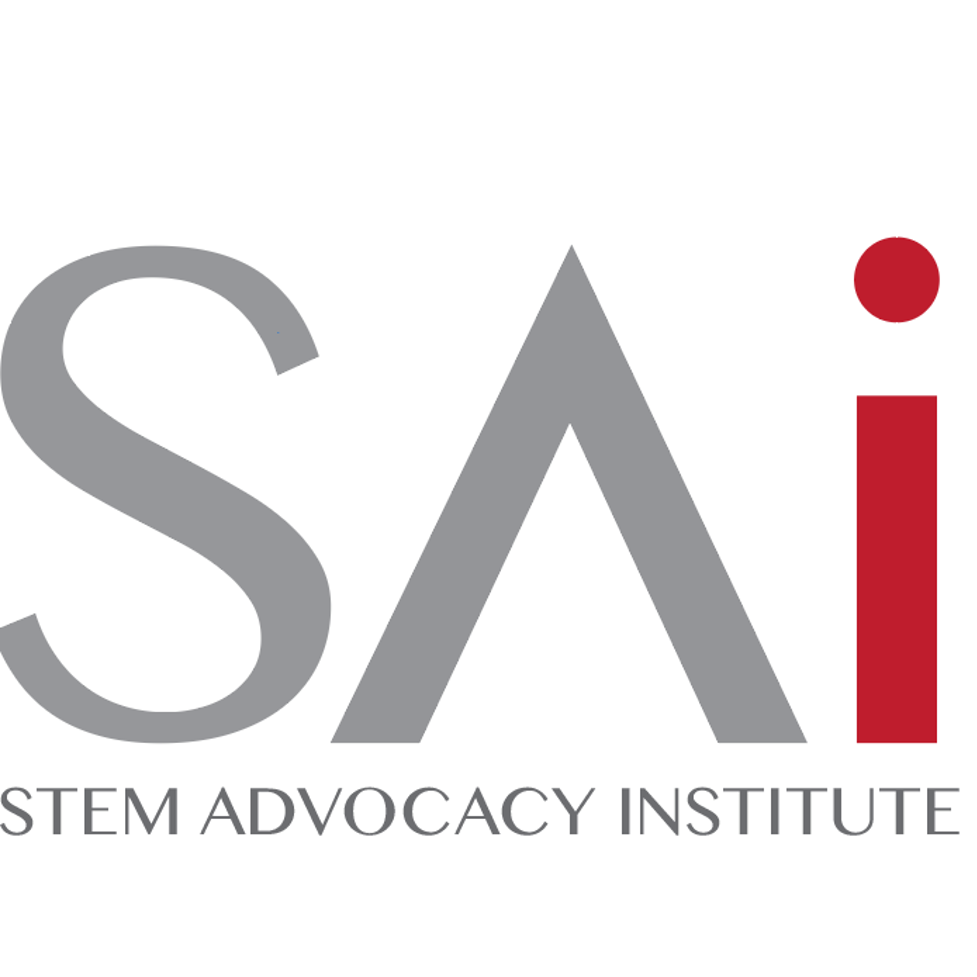 Dr. Muindi founded SAi as a “one-stop-shop” to incubate and launch ideas related to increasing accessibility to science. Along with his 28 residents and staff from all over the world, Dr. Muindi works to provide mentorship, training, funding, and infrastructure in a space dedicated to diversity in STEM. Their mission is to “enable and accelerate the building of new tools and programs that expand pathways of access between STEM and society.” Since 2014, SAi has launched many successful programs including The Journal of Stories in Science and Her STEM Story. Having been blown away by the breadth of ideas presented to SAi, Dr. Muindi describes, “some work out, some don’t, but that’s the point.”
Dr. Muindi founded SAi as a “one-stop-shop” to incubate and launch ideas related to increasing accessibility to science. Along with his 28 residents and staff from all over the world, Dr. Muindi works to provide mentorship, training, funding, and infrastructure in a space dedicated to diversity in STEM. Their mission is to “enable and accelerate the building of new tools and programs that expand pathways of access between STEM and society.” Since 2014, SAi has launched many successful programs including The Journal of Stories in Science and Her STEM Story. Having been blown away by the breadth of ideas presented to SAi, Dr. Muindi describes, “some work out, some don’t, but that’s the point.”
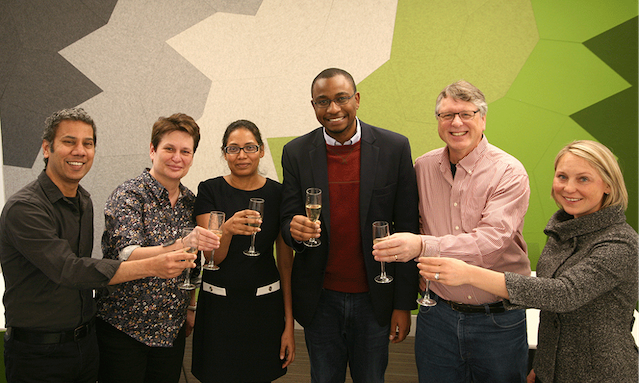
Dr. Muindi feels his journey has just begun. He is continuing to grow SAi in addition to his presence at Harvard. During the interactive question-and-answer session, Dr. Muindi highlighted his key pieces of advice:
1) Build a support system
“Don’t try to do it alone,” Dr. Muindi insists. The majority of his success resulted from networking and creating new connections with like-minded people and a common goal. In fact, Dr. Muindi makes it a point to reach out to his network at least once a month to build relationships. He emphasizes treating your network like a flower – “don’t only water when it’s dead. Build and nurture your local community.” He suggests sending emails and setting up meetings because you never know when you’ll need their help.
2) Be intentional with your time
One of the secrets to Dr. Muindi’s success is compartmentalization. During the day, he focuses on his duties at Harvard, while his evenings and weekends are reserved for SAi work. Dr. Muindi emphasized the importance of being super organized and recommended resources such as Trello and Calendly to help manage time and projects. Finally, Dr. Muindi reminded attendees “take time for yourself.” Whether it’s taking daily walks or spending time with friends and family, it is crucial to maintain a healthy work-life balance.
3) Practice your writing skills
“Write, write, write!” Dr. Muindi describes that no matter what career path you are on, it is a “huge asset and skill wherever you go.” When it comes to writing, “there is a lot of rejection,” but Dr. Muindi also points out that there are resources out there to help. Many organizations hold writing conferences such as ComSciCon, Science Talk, and SACNAS. He also suggests reaching out to program officers and applying for Public Engagement Grants. At the very least, practice and ask for feedback whenever you can.
4) Start small
When it comes to getting involved in STEM diversity, Dr. Muindi proposed reaching out to places like our Office of Career Development for outreach and engagement opportunities. Given that time is a highly valued commodity within the graduate student community, there is no need to reinvent the wheel. Dr. Muindi explains, “Opportunities are there. Structure time to do them.” Some of these opportunities include engaging with the public by doing virtual lab tours or participating in programs like Genes in Space.
5) Learn something new
Throughout his journey, Dr. Muindi describes that he was “learning something new in each circumstance.” In graduate school, he learned resiliency when he had to restructure his entire research project. In his post-graduate work, he learned to persevere with his writing despite the numerous rejections he received. And in his current work with SAi, he learned how to build a team to support his idea that simply started as a 200-word proposal. He encouraged attendees to take each challenge and convert it into a learning opportunity.
In our final thoughts, Dr. Muindi reminded us to focus on the journey, not just the destination.
Here’s where you can find Dr. Muindi:
About The Author
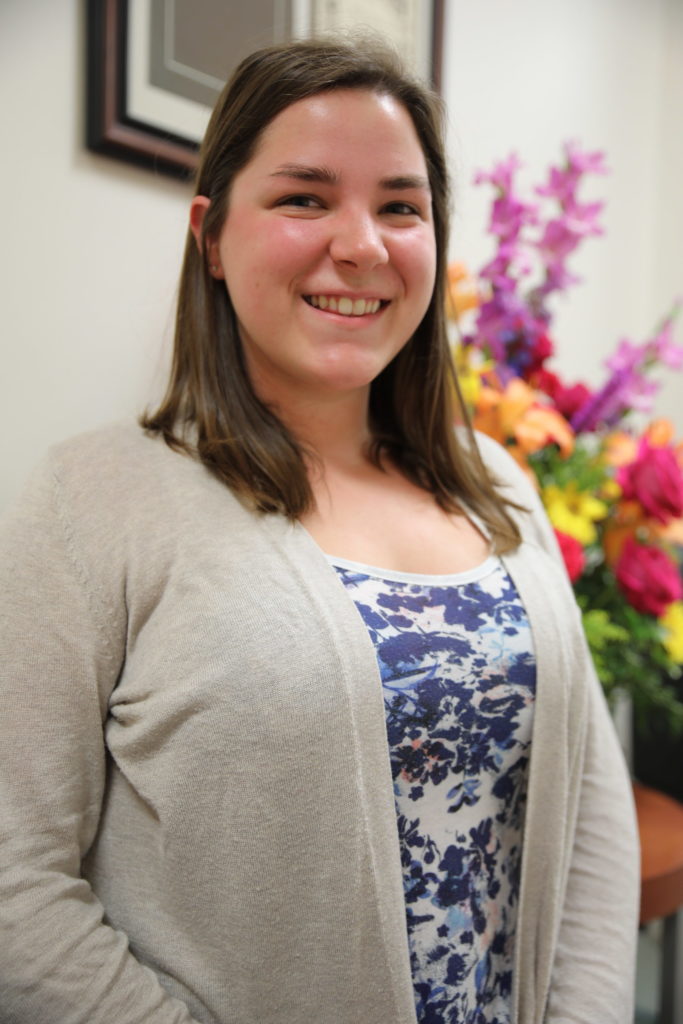 Katie Lillis is originally from Buffalo Grove, IL. She attended the University of Iowa where she received her B.S. in Human Physiology and B.A. in Psychology in 2018. While she was there, Katie worked in the laboratory of Dr. Ryan LaLumiere where she focused on studying the neurobiology of addiction. In 2018, she moved to San Antonio to pursue her Ph.D. in Integrated Biomedical Sciences at UT Health San Antonio. Katie is currently in the Neuroscience discipline and works with Dr. Anibal Diogenes. In this lab, she studies how sensory neurons modulate bone loss in dental infections. She also serves as the Vice President of Women in Science: Development, Outreach, and Mentorship (WISDOM) and will be taking over as the Science Communication Director for Enventure.
Katie Lillis is originally from Buffalo Grove, IL. She attended the University of Iowa where she received her B.S. in Human Physiology and B.A. in Psychology in 2018. While she was there, Katie worked in the laboratory of Dr. Ryan LaLumiere where she focused on studying the neurobiology of addiction. In 2018, she moved to San Antonio to pursue her Ph.D. in Integrated Biomedical Sciences at UT Health San Antonio. Katie is currently in the Neuroscience discipline and works with Dr. Anibal Diogenes. In this lab, she studies how sensory neurons modulate bone loss in dental infections. She also serves as the Vice President of Women in Science: Development, Outreach, and Mentorship (WISDOM) and will be taking over as the Science Communication Director for Enventure.
